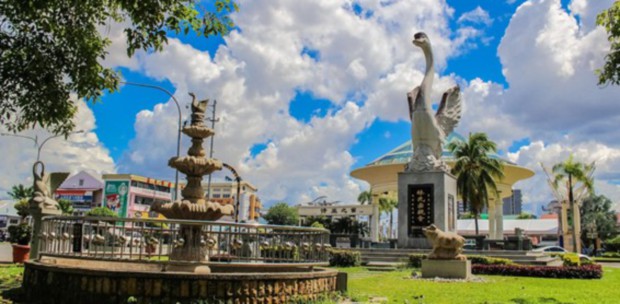WHEN we drive, a blind spot is the most dangerous area to be in. Failure to check the spot can cause a catastrophe on the road. Unfortunately, blind spots also exist in our journey of life.
By definition, a blind spot is an area in our range of vision that we can't see properly, but which we really should be able to see. For example, when we're driving a car, the area just behind our shoulder is often a blind spot.
Similarly, in our life, a blind spot is an area not known to us but visible to others. It's often referred to as "you don't know what you don't know?". It can also be dangerous in a sense that other people can see things about us that we don't even see. At minimum, it can deprive us of an opportunity that are right there, but we fail to see it.
The question is, how do we find our blind spots when we don't know what we're looking for?
CONFIRMATION BIAS
The notion that we can't know what we don't know was brought to light by psychologists Joseph Luft and Harry Ingham when they developed the Johari Window in the 1950s. Four quadrants make up this window, with two rows for "known to others" and "not known to others", and two columns for "known to self" and "not known to self". Of course, our blind spots are in the box that corresponds to "known to others" but "not known to self".
People miss their blind spots mostly because they only see what they want to see, or hear only what they want to hear. Scientists term this behaviour as "confirmation bias" — when we only seek out information that confirms our existing beliefs or ideas.
This results in information about us that other people are aware of, but we're not. It's very likely that people will perceive us differently than we intended. Usually, it contains flaws or deficiencies that we're unaware of. It can also be very embarrassing when we do finally discover our blind spot.
VARIOUS VIEWPOINTS
Being open to feedback is arguably the best way to reduce the size of blind spots. A good person accepts feedback when it's offered, but a great person proactively seeks it out. Most people prefer to think that everything is going according to plan as long as we haven't heard anything on the contrary. Unfortunately, this approach will limit our potentials to the things we're already good at.
We can further reduce our blind spots by seeking out various viewpoints. This can be achieved by reading a wide range of books, periodicals, and websites. We can also go to conferences, or even find time for conversations with people who think differently from us. The key is to be open to different opinions and perspectives, even if they're radically different from ours.
It's natural to have a self-serving bias. But if we're serious about personal growth, be more proactive in seeking feedback and listening to others. Avoid the urge to get offended and be defensive. Instead, thank them generously for their time and effort, for they've helped to reduce our own blind spots, inadvertently or not.
Zaid Mohamad coaches and trains others to bring out their best while enjoying a peaceful, purposeful life. Reach him at [email protected].





